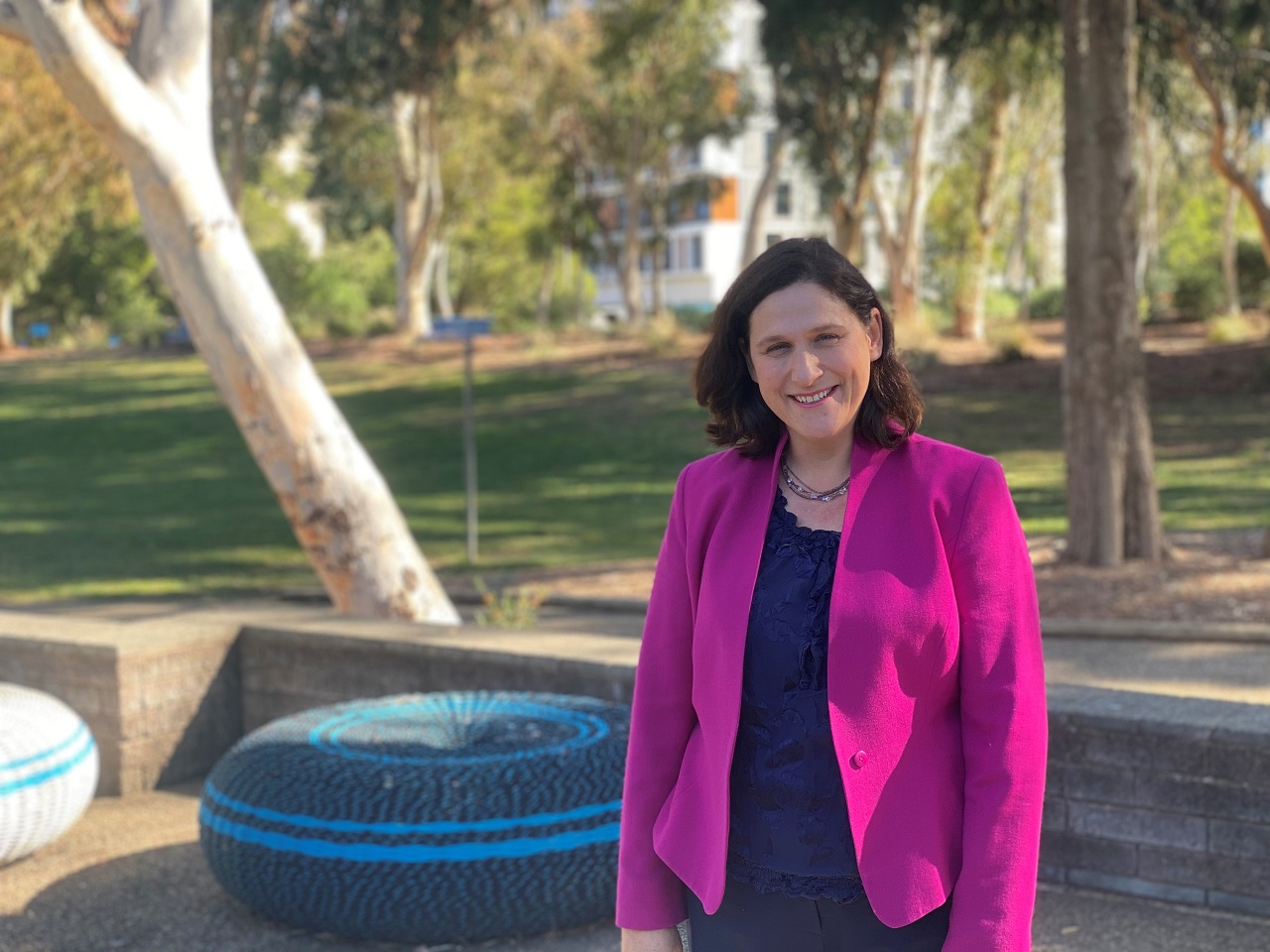Elly Mackay
23 April 2021: Positive outcomes of corruption cases in sport will be in the spotlight this week, with the release of a new book from University of Canberra Assistant Professor Catherine Ordway, entitled Restoring Trust in Sport: Corruption Cases and Solutions.
Edited by Dr Ordway, the book combines contributions by sport and corruption experts from around the world, and is intended to educate and highlight how change can be made following scandals in sport.
“We are lacking good news stories about corruption in sport – there are lots around what’s wrong with organisations like the International Football Federation, FIFA, or the International Olympic Committee [IOC],” Dr Ordway said.
“I really didn’t want this to be a book of misery – so I looked at where there have been scandals and how organisations have done something to fix them.”
When reaching out to her networks for contributors, Dr Ordway wanted to ensure she featured a diverse range of experts.
Chapter authors were engaged from a range of countries, with an emphasis on diversity in the researchers, and the case studies, by gender, sport, culture, discipline and age. The book showcases best practice examples from around the world which can, in turn, be adapted to suit the different sports and regions where they are played.

Dr Ordway chose to particularly highlight female writers and early career researchers.
“When you look at the sports industry, particularly in sports management and the sports integrity space, it’s overwhelmingly men in those roles,” Dr Ordway said.
“I wanted to promote female voices, as well as those who are in the early part of their career, finishing, or have recently completed their PhD.”
Restoring Trust in Sport: Corruption Cases and Solutions features 14 chapters from 24 contributors who live in 10 different countries – aimed at providing thorough coverage, through multiple perspectives.
“Something like corruption – whether in sport or otherwise – can’t be dealt with through a single lens,” Dr Ordway said.
While the book describes many instances of the improvement of corruption in sport, a stand-out example is the relationship between Tennis Australia and the Victorian Police to combat corruption within the Australian Open.
Dr Ordway says that the relationship allows the two organisations to cooperate in a world-first interagency project to beat match-fixing – a surprisingly common offence within the tennis world.
“Internationally, there has been a number of examples of match-fixing, especially among lower-ranked players whose salaries are quite low,” Dr Ordway said.
“In Australia there haven’t been too many major scandals, but this partnership is a great example of how that kind of behaviour is being prevented.”
In the end, Dr Ordway says the key to getting ahead of corruption in sport is going back to our roots.
“Restoring trust requires us to get back to what it is we do sport for – why do people love sport, and why are people getting a tear in their eye when they watch their favourite team play – what is it about sport that really catches the heart?” she said.
“If we get back to the community aspect of sport, and to people being healthy, active, having fun and friendships – it can break down those barriers between different cultures and create an inclusive environment.”
Restoring Trust in Sport: Corruption Cases and Solutions was released on 20 April 2021, and is available in ebook and print formats.
It is available at the UC Library and listed for sale from Routledge, Booktopia and Amazon.


